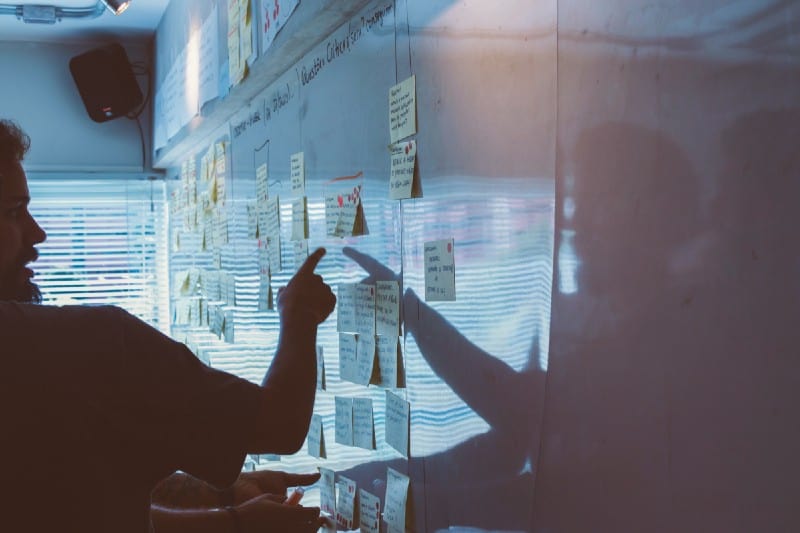Find out why a facilitator can be an invaluable addition to any high-stakes meeting or gathering.
Think about the worst meeting you’ve participated in recently. What was missing? What went wrong? Did someone dominate the conversation? Did a discussion turn into a lengthy, pointless debate? Were two groups needlessly battling over competing ideas or interests? Did you finish without making a decision? Or, did you make the same safe decisions you always do?
You can likely relate to some, or all, of these scenarios. If so, you could benefit from engaging with a professional facilitator the next time you have an important meeting, gathering, workshop, or working session.
If you’ve suffered through too many bad meetings, consider engaging with a professional facilitator the next time you have an important gathering, workshop, or working session.

What is a facilitator?
A facilitator is someone who plans, designs, and leads a key group event. Their job is to ensure that you meet your objectives, have fruitful conversations, and that, generally, the group gets what they need and want out of a gathering. Think of them as the “Switzerland” of your meeting. They don’t come armed with a personal agenda or opinions about the topic at hand. Instead, they are experts at guiding groups through decision-making processes.
“A facilitator acts as a guide to help people move through a process. They guide the participants towards an exploratory journey of learning by helping them to delve into their inner self to realize their strengths and weaknesses, helping them to share their experiences and learning from the experiences of others.” — Akash Chander from “6 Essential Skills of an Effective Facilitator.”

When do you need a facilitator?
When should you reach out to a professional facilitator? You probably don’t need a facilitator for that weekly team meeting or your average gettogether. But, if you have a gathering that is especially important, high-stakes, sensitive, or complex, you might get a lot out of working with a facilitator. When you need outside, and impartial, perspective, think about looking for an expert facilitator.
These are types of gatherings that can benefit from a facilitator:
- Design thinking or innovation workshops
- Design Sprints
- Corporate summits or offsites
- Key strategy meetings
- Project retrospectives
- Kickoff for key initiatives
- Board meetings
- Staff meetings and retreats
- Community meetings
- Multi-day gatherings with many participants

What are the benefits of a facilitator?
You might be wondering if investing in a facilitator is worth it for your gathering. Couldn’t you have someone in your company or group do the facilitation? You definitely could; but, for that vital gathering, most people find that an experienced facilitator is a worthwhile addition and that they lead to better outcomes.
Some of the benefits of a professional facilitator are:
- Bring an impartial, ‘outsiders’ perspective
- Expert in guiding groups through tough, complex, or politically-charged conversation and discussions
- Leverage a vast toolkit of methods and activities to get you to the outcomes you want
- Makes sure that the whole group participates and is present
- Allows critical stakeholders to engage in the work-at-hand instead of worrying about the agenda or logistics
- Guides groups through critical or fuzzy decision points

What exactly do facilitators do?
Facilitators do much more than lead the meeting or gathering itself. While we think about facilitators doing most of their work in-the-moment, they are also essential to planning and wrap-up activities.
Here are some of the things your facilitator helps with before, during, and after your gathering:
Before: Planning & Logistics
- Understand Goals: Before your meeting, your facilitator will meet with you to understand the reason for the gathering, as well as your desired goals and outcomes.
- Build Agenda: Based on your goals, the facilitator works with you to plan and design the exact activities that will take place during your session. They also might weigh-in on your participant list so that you have the right number of people (not too few, not too many) and a range of perspectives.
- Logistics: Another benefit of a facilitator, is that they take care of many event logistics that can be a time-sink. They might help you find the right location for your gathering, coordinate ordering or bringing supplies, and order tasty food and snacks for the meeting.

During: Leading the Group
- Guide the Group: On the big day (or days, if it is a multi-day gathering), the facilitator is the leader of your meeting. They are calling the shots, watching the clock, and telling the group when to move onto the next activity. It’s time for participants to sit back and let the facilitator do what they do best — run the meeting.
- Ensure Participation: Another bonus of professional facilitators is that they make sure everyone is participating. Have someone who talks too much in the meeting? (We all know that person.) Your facilitator can gently guide the conversation to other people in the room. Is someone with a critical perspective sitting on their computer, zoned out and not talking? Your facilitator will tactfully get them to engage with the group.
- Synthesize: Another skill that facilitators bring to the table is their ability to cut through the noise, conversation, and debate and “bubble up” what the group is saying. They distill conversations and key discussion points and can summarize what they hear the group saying. (That’s why they’ll probably ask for Post-It notes and a whiteboard in the room.)
After: Playback & Reporting
- Share Back: Your facilitator’s job doesn’t end at the end of the gathering. They are typically responsible for summarizing what happened — i.e. in a PowerPoint or document of some type. For example, did you decide on your tactics for launching your new app? Or, what were those awesome ideas you dreamed up for Q2? Your facilitator will take photos and notes and synthesize everything into a helpful document so you can share and reflect on what you accomplished at your meeting.

What qualities should you look for in a facilitator?
Facilitators typically have a myriad of soft skills and interpersonal skills. It’s not just about being a good speaker and leader in the room.
If you’ve decided to hire a facilitator, look for these skills and qualities:
- Confidence: Able to control the room and keep participants interested and engaged.
- Humility: Knows this event is not about them and relishes that fact.
- Flexibility: Comfortable course-correcting during the gathering if things change, participants want something different, or the agenda needs to change.
- Curiosity: Interested in their client’s problems, product, or challenge and is excited to learn more about it.
- Experience: Has successfully led meetings and gatherings for clients and companies before.
Need an expert facilitator for your next meeting, gathering or workshop? Let’s talk.
Voltage Control facilitates events of all kinds, including design thinking workshops, innovation sessions, and Design Sprints. Please reach out to us at info@voltagecontrol.co if you want to talk or for a consultation.



